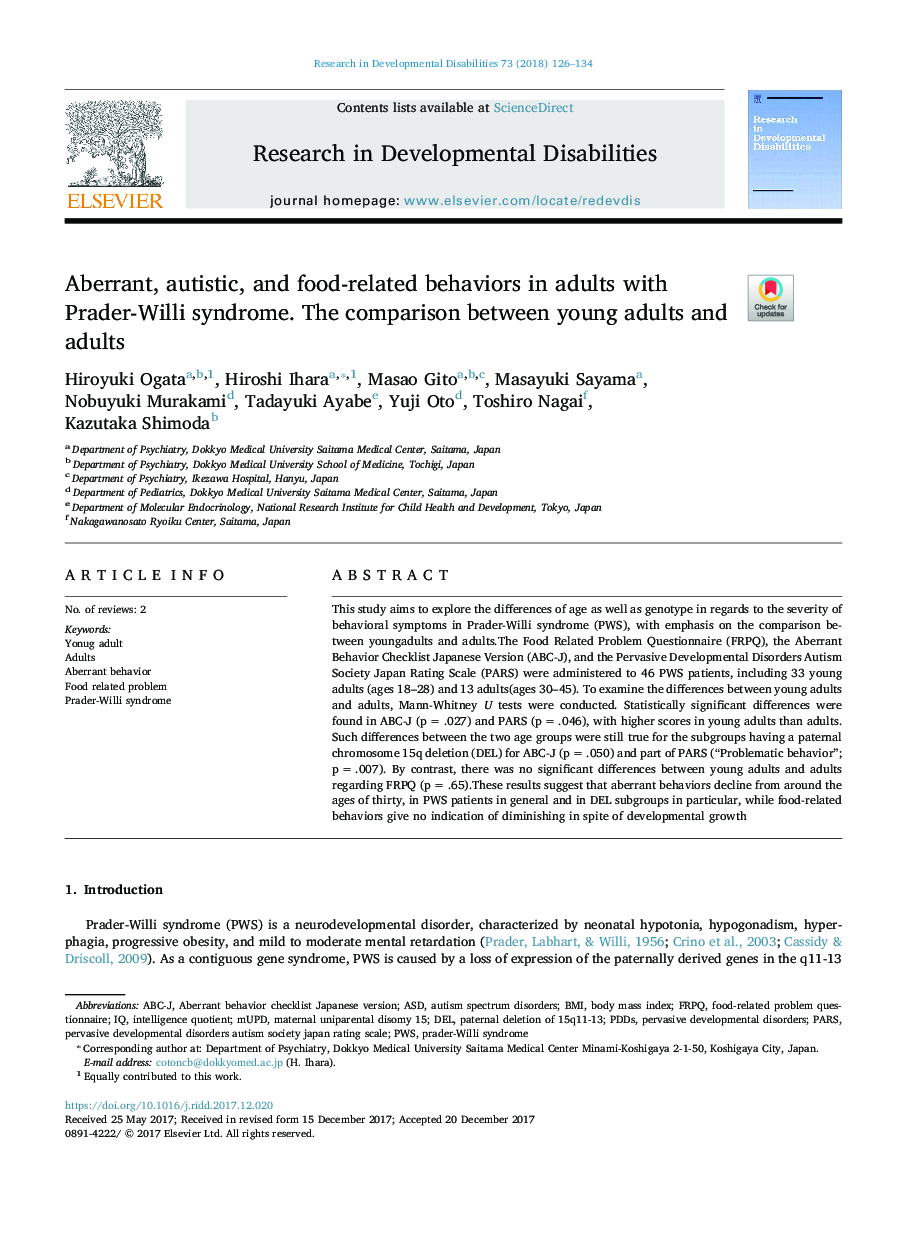| Article ID | Journal | Published Year | Pages | File Type |
|---|---|---|---|---|
| 6848270 | Research in Developmental Disabilities | 2018 | 9 Pages |
Abstract
This study aims to explore the differences of age as well as genotype in regards to the severity of behavioral symptoms in Prader-Willi syndrome (PWS), with emphasis on the comparison between youngadults and adults.The Food Related Problem Questionnaire (FRPQ), the Aberrant Behavior Checklist Japanese Version (ABC-J), and the Pervasive Developmental Disorders Autism Society Japan Rating Scale (PARS) were administered to 46 PWS patients, including 33 young adults (ages 18-28) and 13 adults(ages 30-45). To examine the differences between young adults and adults, Mann-Whitney U tests were conducted. Statistically significant differences were found in ABC-J (pâ¯=â¯.027) and PARS (pâ¯=â¯.046), with higher scores in young adults than adults. Such differences between the two age groups were still true for the subgroups having a paternal chromosome 15q deletion (DEL) for ABC-J (pâ¯=â¯.050) and part of PARS (“Problematic behavior”; pâ¯=â¯.007). By contrast, there was no significant differences between young adults and adults regarding FRPQ (pâ¯=â¯.65).These results suggest that aberrant behaviors decline from around the ages of thirty, in PWS patients in general and in DEL subgroups in particular, while food-related behaviors give no indication of diminishing in spite of developmental growth
Keywords
Related Topics
Life Sciences
Neuroscience
Behavioral Neuroscience
Authors
Hiroyuki Ogata, Hiroshi Ihara, Masao Gito, Masayuki Sayama, Nobuyuki Murakami, Tadayuki Ayabe, Yuji Oto, Toshiro Nagai, Kazutaka Shimoda,
